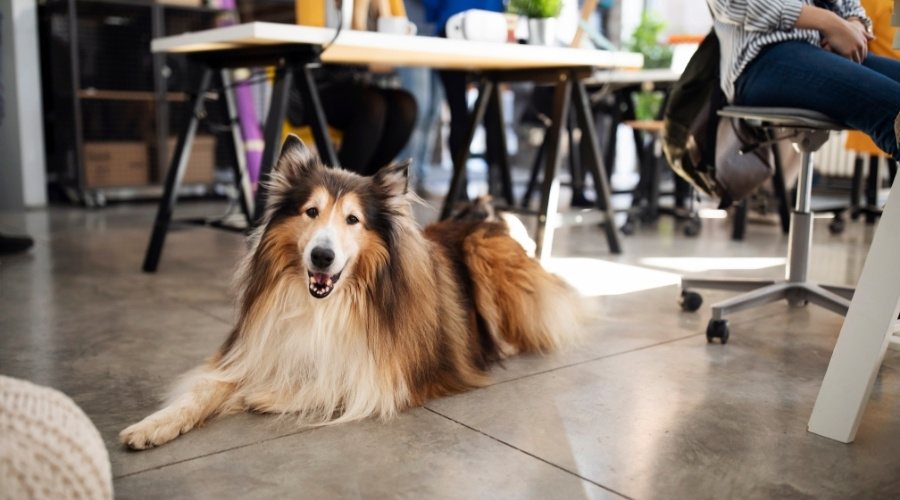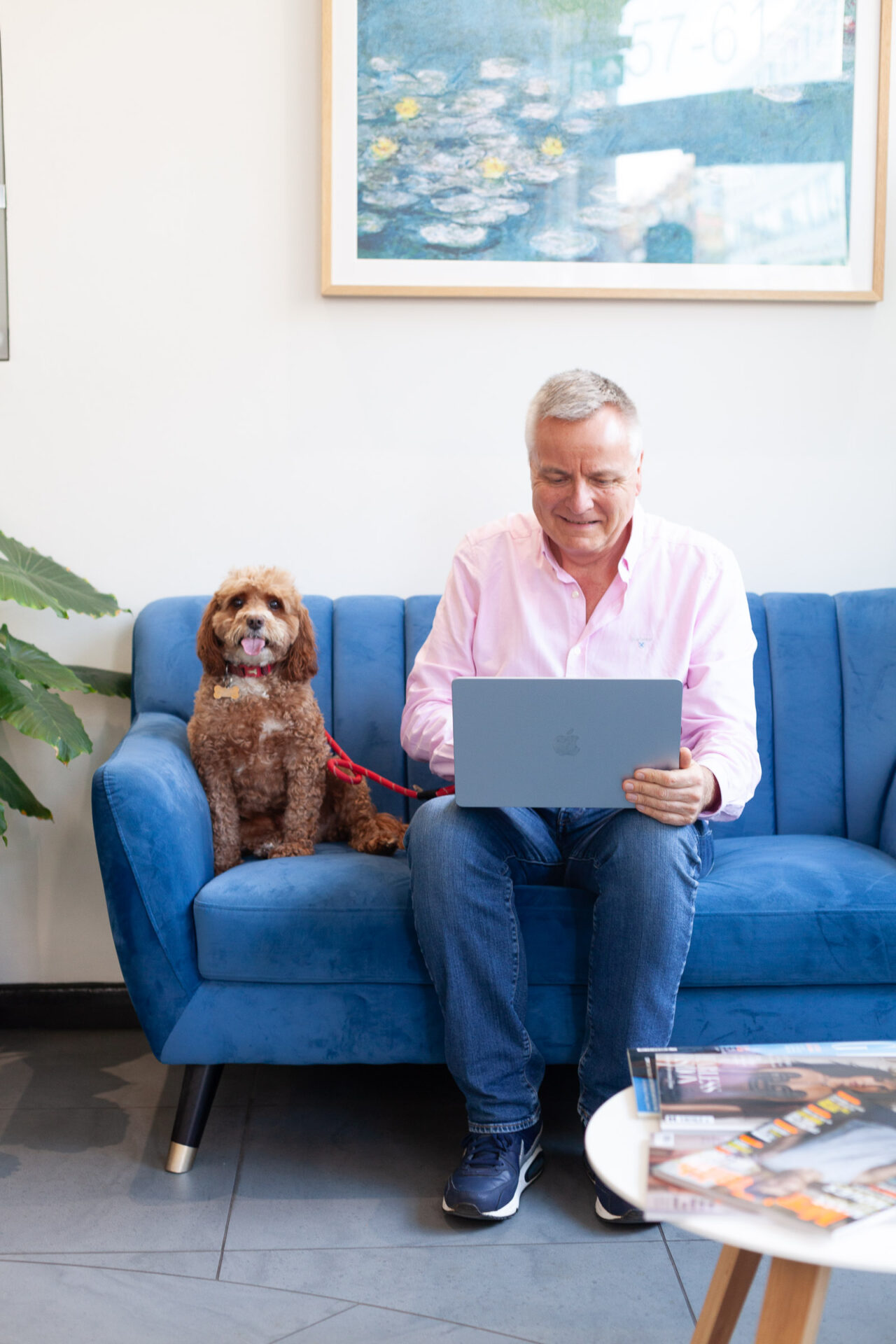Konrad Lorenz, the renowned Austrian zoologist, put it perfectly: “The bond with a true dog is as lasting as the ties of this earth will ever be.” It’s no wonder that for many professionals, a workplace that welcomes their four-legged companions is a true competitive advantage.
With 60% of British households now owning pets – including an incredible 13.5 million dogs – the connection between people and their pets has never been stronger. During the pandemic alone, 3.2 million households chose to bring a dog into their lives, reinforcing just how much these companions mean to us. And the benefits go far beyond getting more exercise.
What is a pet-friendly office?
A pet-friendly office is a workplace that welcomes employees to bring their pets to work, fostering an environment where animals are embraced as part of the company culture. The goal is to reduce stress, lift morale, and create a more relaxed, enjoyable atmosphere.
These workplaces often feature designated pet areas, outdoor spaces for walks, and clear policies to maintain safety, cleanliness, and comfort for everyone. By integrating pets into the office environment, companies not only enhance employee well-being but also encourage stronger social connections and greater overall job satisfaction.

Why pet-friendly offices are good for business
Pet-friendly offices not only enhance employee happiness and productivity, but also reduces stress, encourages collaboration, and improves emotional well-being, creating a relaxed, engaging, and positive environment where both people and businesses can thrive together every day.
Reduced stress levels
Having pets in the workplace can significantly reduce stress levels among employees. Interacting with animals, such as petting a dog or watching a cat play, can trigger the release of calming hormones like serotonin and oxytocin while lowering cortisol, the body’s primary stress hormone. This helps create a more relaxed and positive atmosphere, allowing employees to handle challenges with greater patience and focus.
Pets also encourage short breaks, which prevent burnout and mental fatigue. The presence of pets in the office promotes emotional balance, reduces anxiety, and fosters a sense of comfort and well-being throughout the workday.
Connections and boost workplace collaboration
Dogs bring joy, companionship and a sense of routine. They help us connect with others, providing daily opportunities for social interaction. With many employers encouraging staff back into the office, it’s clear that a pet-friendly policy isn’t just a perk. It’s a way to create a more engaging, connected workplace.
Research increasingly shows that pets act as social catalysts, encouraging interaction, strengthening workplace relationships and fostering collaboration. Ultimately, these stronger bonds translate into better teamwork, communication, and a more positive company culture.
Contribute to physical and emotional well-being
Beyond their social benefits, pets also contribute to our physical and emotional well-being. Therapy animals have long played vital roles in hospitals, schools, and even police stations, so it’s no surprise that more companies are embracing the presence of well-behaved pets in their offices.
At Gilmoora House, we see firsthand how having dogs around lifts moods, reduces stress, and boosts focus on all while making our workspace an even better place to be. This nurturing environment helps employees feel healthier, happier, and more motivated every day.

Encourages social interaction and team bonding
A pet-friendly office is more than just an idea. It’s a reality we fully embrace. Many of our residents bring their dogs in regularly, and we love celebrating this by hosting special Bring Your Dog to Work days. Our last event saw a record nine dogs of all breeds, ages and sizes playing together in our break-out spaces, while their owners, some of whom had never met before, connected in a relaxed and fun atmosphere.
Pets in the workplace policy
Bringing pets to the workplace is becoming increasingly popular. With carefully designed rules and clear workplace policies, a pet-friendly environment can boost employee happiness, enhance productivity, and ensure the comfort and safety of everyone at work.
- Risk assessment and suitability check: Employers must carry out a risk assessment under the Management of Health and Safety at Work Regulations 1999 to evaluate hazards such as allergies, trips, noise, mess or evacuation issues.
- Health, vaccination, and training requirements: Pets must be well-behaved, vaccinated, clean and supervised. For example, before a dog comes to the office it should be toilet-trained, have up-to-date vaccinations and basic obedience.
- Designated pet-friendly areas and restrictions: The policy should clarify which areas pets may use and which are off-limits (e.g, kitchens, meeting rooms, leased space where landlord prohibits animals).
- Owner responsibilities and conduct rules: The pet owner must clean up after the animal, keep it under control at all times, ensure it does not interfere with work, damage property, or pose risk to others.
- Consideration of other employees: Employers must consult staff about allergies, phobias, or discomfort with pets. Pets should not be introduced without taking into account the rights and well-being of all employees.

Gilmoora House: Your perfect pet-friendly workplace in Central London
As we continue to embrace a more flexible and inclusive workplace culture, we look forward to seeing even more furry friends join our community. Whether they’re snoozing under desks, making new canine companions, or simply offering a moment of comfort during a busy day, our four-legged colleagues play a big role in making Gilmoora House feel like home. Looking ahead, we’re always considering new ways to make our pet-friendly environment even more welcoming. Whether through shared spaces, informal gatherings, or other opportunities for interaction, we enjoy seeing both people and pets enjoying their time at Gilmoora House.




